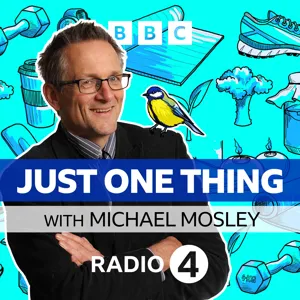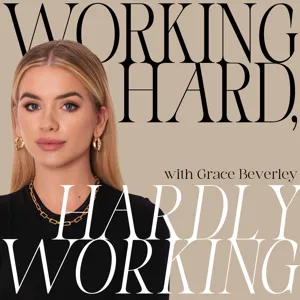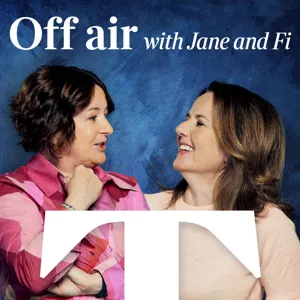Podcast Summary
Exploring LinkedIn for Hiring and Healthy Eating Tips: LinkedIn offers access to a unique pool of candidates and simple changes like eating more fruit can help satisfy sugar cravings and improve health
LinkedIn is a valuable resource for businesses looking to hire professionals, particularly those who aren't actively seeking new jobs. With over 70% of LinkedIn users not visiting other leading job sites, posting a free job on LinkedIn can help businesses access a unique pool of candidates. Additionally, when it comes to improving health, simple changes can make a big difference. According to Dr. Michael Mosley, one thing that can help satisfy sugar cravings is eating more fruit. Although fruit contains sugar, it is also rich in fiber and vitamins that help process the sugar more slowly and support gut health. Eating fruit may also boost memory and reduce sugary cravings in the long run. Another key takeaway from the discussion is the importance of exploring new things to improve health and well-being. Whether it's trying a new exercise like Tai Chi or incorporating more nuts into your diet, small changes can lead to significant improvements. Lastly, the BBC World Service podcast highlights the importance of advertising in supporting free content and the value of sharing podcasts on social media to spread awareness and engage in discussions.
Replace sugary treats with fruit for better health: Reducing added sugars and increasing fruit intake can improve teeth, waistline, mood, memory, and extend lifespan. Replacing sugary treats with fruit can reduce sugar cravings and have positive effects on mood and memory.
Reducing our intake of added sugars and increasing our consumption of fruit can have numerous health benefits. The average adult consumes twice the recommended daily amount of free sugars, which can lead to negative effects on our teeth, waistline, mood, memory, and even shorten our lifespan. Fruit juices and sugary drinks are major contributors to this excess sugar intake. Instead of asking to simply cut back, a more effective solution is to replace sugary treats with fruit. Research suggests that eating more fiber from fruits can help reduce sugar cravings. Furthermore, naturally occurring sugars in fruit, such as fructose, may even have positive effects on mood and memory. So, by making this simple swap, we can enjoy a double whammy of improved health and wellbeing.
Sugary diets impact gut microbiome, leading to sugar cravings: Consuming large amounts of added sugar harms health, alters gut microbiome, and increases sugar cravings. Changing gut microbiome through diet can help reduce cravings.
Consuming large amounts of added sugar not only impacts our overall health by leading to insulin resistance and potential fat deposition, but it can also alter our gut microbiome in ways that may increase sugar cravings. A study on mice has shown a direct link between the gut and the brain, with sugary diets influencing neurons and creating a preference for sugar. However, there is evidence that changing the balance of microbes in our gut through diet can help reduce cravings. A randomized controlled trial conducted by the speaker's group demonstrated the effectiveness of such an intervention. It's important to note that consuming fruits with their skin and fiber can benefit our gut microbiome, while sugar alone can lead to harmful bacterial strains. Overall, making conscious dietary choices and incorporating more fiber into our diets can help improve both our health and reduce sugar cravings.
Two weeks of consuming prebiotic fiber can reduce sugar cravings and change brain activity: Consuming prebiotic fiber for two weeks can help reduce sugar cravings and improve brain activity related to reward networks. Replace sugary snacks with whole fruits for healthier alternatives.
Consuming prebiotic fiber, such as inulin, for just two weeks can help reduce food cravings, specifically for sugar, and even show changes in brain activity related to reward networks. This is the first evidence of this connection between gut microbiome and brain activity. For those trying to reduce sugar cravings, the advice is to first, reduce high-sugar items, and second, replace them with healthier snack options like whole fruits. This simple change can lead to improvements in mood, memory, and potentially even longevity. As one participant, Bianca, shared, she successfully swapped out sugar for fruit and saw an improvement in her cravings and skin texture. It's important to note that fighting sugar cravings can be challenging, and clearing out sugary treats from your environment can help. Instead of reaching for sugary snacks, try snacking on whole fruits for a healthier alternative. Tune in to the next episode of "Just One Thing" to learn how reaching out to others can benefit your brain, lower stress levels, and help fight off infections.
Exploring the Complexities of Our Bodies and Cycles: Understanding our menstrual cycles through science, history, and practical applications can lead to empowerment, improved well-being, and personal growth.
Our bodies go through incredible changes throughout the menstrual cycle, and understanding these changes can have a profound impact on our lives. From the scientific perspective, hormones like estrogen play a role in our sense of smell and brain function. Historically, women's bodies have been shrouded in mystery and misconceptions, with ancient beliefs ranging from the womb being a mischievous creature to the fear of examining a woman's vagina leading to sexual rage. However, with modern knowledge and advancements, we now have the power to embrace our cycles and harness their potential. For instance, the BBC Radio 4 podcast "28 ish Days Later" explores the science behind our bodies and the historical treatment of women throughout their cycles. It sheds light on how understanding our cycles can lead to empowerment and improved well-being. Meanwhile, in our professional and personal lives, being prepared for the unexpected is crucial. Tools like SAP Concur can help automate business finances, allowing us to focus on other aspects of our lives. And when it comes to travel, Quince offers high-quality essentials at affordable prices while ensuring ethical manufacturing practices. In essence, whether it's through scientific discovery, historical understanding, or practical applications, embracing the complexities of our bodies and cycles can lead to personal growth, empowerment, and overall improvement in our lives.



![Episode 109- SUCCESS STORY! Heather Steineke Overcomes Chronic Constipation and Weight Cycling [REPLAY]](https://www.podcastworld.io/podcast-images/fast-to-heal-stories-or9gz946.webp)


